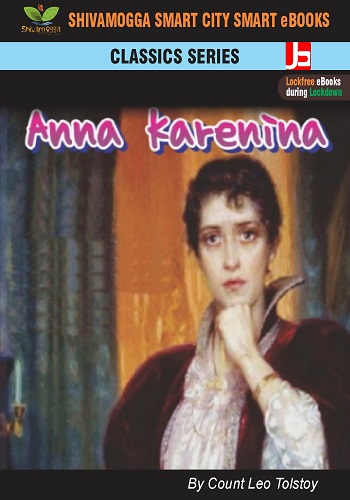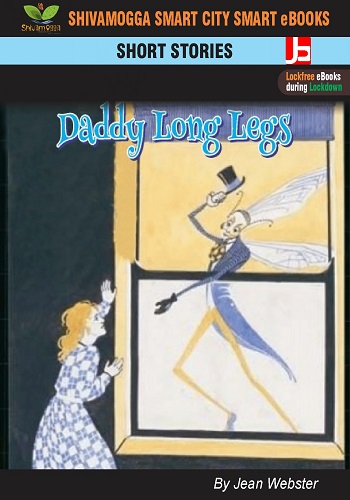-
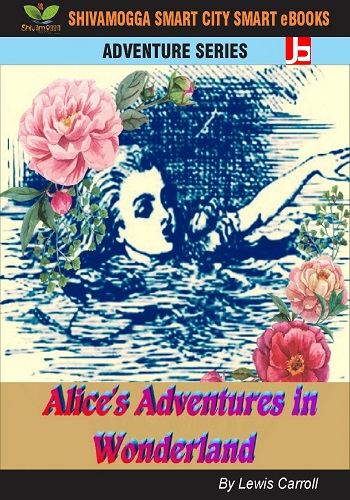 ‘Alice in Wonderland’ is the best known work of Charles Lutwidge Dodgson, better known by his pen name, ‘Lewis Carroll’. Telling the tale of a girl named Alice who falls down a rabbit hole into a fantasy world populated by surreal and anthropomorphic creatures, the book was a huge commercial success on its initial publication. It was followed by its sequel, ‘Through the Looking-Glass, and What Alice Found There’. The books play at the heart of logical problems and literary nonsense – giving the narrative lasting popularity with adults and children alike. This classic story is accompanied by the beautiful and delicate illustrations of Millicent Sowerby, a prolific and extremely talented illustrator of The Golden Age of Illustration. Millicent Sowerby was the daughter of famous designer and illustrator John G. Sowerby. She began her career with this edition of Alice in Wonderland and produced many books over the following twenty years. Pook Press celebrates the great ‘Golden Age of llustration‘ in children’s literature – a period of unparalleled excellence in book illustration. We publish rare and vintage Golden Age illustrated books, in high-quality colour editions, so that the masterful artwork and story-telling can continue to delight both young and old.
‘Alice in Wonderland’ is the best known work of Charles Lutwidge Dodgson, better known by his pen name, ‘Lewis Carroll’. Telling the tale of a girl named Alice who falls down a rabbit hole into a fantasy world populated by surreal and anthropomorphic creatures, the book was a huge commercial success on its initial publication. It was followed by its sequel, ‘Through the Looking-Glass, and What Alice Found There’. The books play at the heart of logical problems and literary nonsense – giving the narrative lasting popularity with adults and children alike. This classic story is accompanied by the beautiful and delicate illustrations of Millicent Sowerby, a prolific and extremely talented illustrator of The Golden Age of Illustration. Millicent Sowerby was the daughter of famous designer and illustrator John G. Sowerby. She began her career with this edition of Alice in Wonderland and produced many books over the following twenty years. Pook Press celebrates the great ‘Golden Age of llustration‘ in children’s literature – a period of unparalleled excellence in book illustration. We publish rare and vintage Golden Age illustrated books, in high-quality colour editions, so that the masterful artwork and story-telling can continue to delight both young and old. -
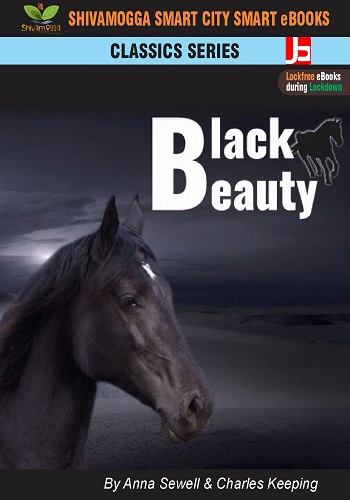 Perhaps the most celebrated animal story across the world, Black Beauty is the suspenseful and deeply moving account of a horse's experiences at the hands of many owners―some, sensitive riders who treated him gently; others, cruel drivers who thoughtlessly inflicted lasting damage.Written as the animal's autobiography, and as an appeal for the humane treatment of horses, Anna Sewell's beloved classic reveals as much about human conduct and the social ills of the time as it does about the treatment of animals. Scenes from the lives of both the landed gentry and the impoverished working class offer a subtle but well-rounded perspective of social conditions in England during the late 19th century. Animal lovers of all ages will cherish this memorable story, available in this unabridged, modestly priced edition
Perhaps the most celebrated animal story across the world, Black Beauty is the suspenseful and deeply moving account of a horse's experiences at the hands of many owners―some, sensitive riders who treated him gently; others, cruel drivers who thoughtlessly inflicted lasting damage.Written as the animal's autobiography, and as an appeal for the humane treatment of horses, Anna Sewell's beloved classic reveals as much about human conduct and the social ills of the time as it does about the treatment of animals. Scenes from the lives of both the landed gentry and the impoverished working class offer a subtle but well-rounded perspective of social conditions in England during the late 19th century. Animal lovers of all ages will cherish this memorable story, available in this unabridged, modestly priced edition -
 Trajectory presents classics of world literature with 21st century features! Our original-text editions include the following visual enhancements to foster a deeper understanding of the work: Word Clouds at the start of each chapter highlight important words. Word, sentence, paragraph counts, and reading time help readers and teachers determine chapter complexity. Co-occurrence graphs depict character-to-character interactions as well character to place interactions. Sentiment indexes identify positive and negative trends in mood within each chapter. Frequency graphs help display the impact this book has had on popular culture since its original date of publication. Use Trajectory analytics to deepen comprehension, to provide a focus for discussions and writing assignments, and to engage new readers with some of the greatest stories ever told. "Dorothy and the Wizard in Oz" by Lyman Frank Baum is a classic children's novel. When Dorothy falls underground in an earthquake, she ends up in the magical Land of Oz and makes friends with a Scarecrow, the Tin Woodman, the Cowardly Lion, and more!
Trajectory presents classics of world literature with 21st century features! Our original-text editions include the following visual enhancements to foster a deeper understanding of the work: Word Clouds at the start of each chapter highlight important words. Word, sentence, paragraph counts, and reading time help readers and teachers determine chapter complexity. Co-occurrence graphs depict character-to-character interactions as well character to place interactions. Sentiment indexes identify positive and negative trends in mood within each chapter. Frequency graphs help display the impact this book has had on popular culture since its original date of publication. Use Trajectory analytics to deepen comprehension, to provide a focus for discussions and writing assignments, and to engage new readers with some of the greatest stories ever told. "Dorothy and the Wizard in Oz" by Lyman Frank Baum is a classic children's novel. When Dorothy falls underground in an earthquake, she ends up in the magical Land of Oz and makes friends with a Scarecrow, the Tin Woodman, the Cowardly Lion, and more! -
 Earnest and naive solicitor Jonathan Harker travels to Transylvania to organise the estate of the infamous Count Dracula at his crumbling castle in the ominous Carpathian Mountains. Through notes and diary entries, Harker keeps track of the horrors and terrors that beset him at the castle, telling his fiancé Mina of the Count’s supernatural powers and his own imprisonment. Although Harker eventually manages to escape and reunite with Mina, his experiences have led to a mental breakdown of sorts. Meanwhile in England, Mina’s friend Lucy has been bitten and begins to turn into a vampire. With the help of Professor Van Helsing, a previous suitor of Lucy’s, Seward, and Lucy’s fiancé Holmwood attempt to thwart Count Dracula and his attempts on Lucy and consequently Mina’s life. Arguably the most enduring Gothic novel of all times, Bram Stoker’s Dracula is as chilling today in its depiction of the vampire world and its exploration of Victorian values as it was at its time of publication.
Earnest and naive solicitor Jonathan Harker travels to Transylvania to organise the estate of the infamous Count Dracula at his crumbling castle in the ominous Carpathian Mountains. Through notes and diary entries, Harker keeps track of the horrors and terrors that beset him at the castle, telling his fiancé Mina of the Count’s supernatural powers and his own imprisonment. Although Harker eventually manages to escape and reunite with Mina, his experiences have led to a mental breakdown of sorts. Meanwhile in England, Mina’s friend Lucy has been bitten and begins to turn into a vampire. With the help of Professor Van Helsing, a previous suitor of Lucy’s, Seward, and Lucy’s fiancé Holmwood attempt to thwart Count Dracula and his attempts on Lucy and consequently Mina’s life. Arguably the most enduring Gothic novel of all times, Bram Stoker’s Dracula is as chilling today in its depiction of the vampire world and its exploration of Victorian values as it was at its time of publication. -
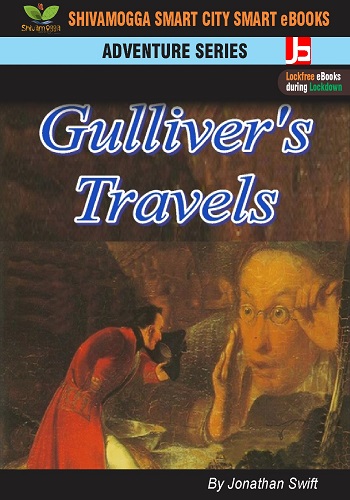 Through the eyes of Lemuel Gulliver, Swift's unforgettable satire takes readers into worlds formerly unimagined. Visit four strange and remarkable lands: Lilliput, where Gulliver seems a giant among a race of tiny people; Brobdingnag, the opposite, where the natives are giants and Gulliver puny; the ruined yet magical country of Laputa; and the home of the Houyhnhnms, gentle horses far superior to the ugly humanoid Yahoos who share their universe.
Through the eyes of Lemuel Gulliver, Swift's unforgettable satire takes readers into worlds formerly unimagined. Visit four strange and remarkable lands: Lilliput, where Gulliver seems a giant among a race of tiny people; Brobdingnag, the opposite, where the natives are giants and Gulliver puny; the ruined yet magical country of Laputa; and the home of the Houyhnhnms, gentle horses far superior to the ugly humanoid Yahoos who share their universe. -
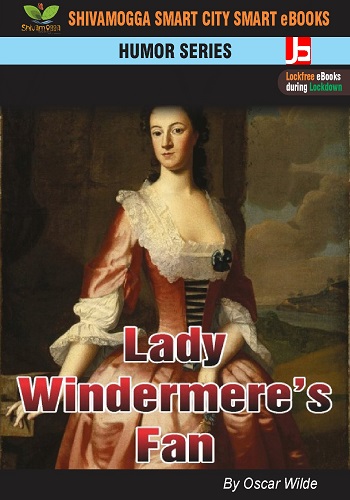 Lady Windermere's Fan, A Play About a Good Woman is a four-act comedy by Oscar Wilde, at the St James's Theatre in London. The story concerns Lady Windermere, who suspects that her husband is having an affair with another woman. She confronts him with it but although he denies it, he invites the other woman, Mrs Erlynne, to his wife's birthday ball. Angered by her husband's supposed unfaithfulness, Lady Windermere decides to leave her husband for another lover. After discovering what has transpired, Mrs Erlynne follows Lady Windermere and attempts to persuade her to return to her husband and in the course of this, Mrs Erlynne is discovered in a compromising position. It is then revealed Mrs Erlynne is Lady Windermere's mother, who abandoned her family twenty years before the time the play is set. Mrs Erlynne sacrifices herself and her reputation to save her daughter's marriage. Act I The play opens in the morning room of the Windermeres' residence in London. It is tea time and Lady Windermere--who is preparing for her coming of age birthday ball that evening--has a visit from a friend, Lord Darlington. She shows off her new fan: a present from her husband. She explains to Lord Darlington that she is upset over the compliments he continues to pay to her, revealing that she is a Puritan and has very particular views about what is acceptable in society. The Duchess of Berwick calls and Lord Darlington leaves shortly thereafter. The Duchess informs Lady Windermere that her husband may be betraying her marriage by making repeated visits to another woman, a Mrs Erlynne, and possibly giving her large sums of money. These rumours have been gossip among London society for quite a while, though seemingly this is the first Lady Windermere has heard about it. Following the departure of the Duchess, Lady Windermere decides to check her husband's bank book. She finds the book in a desk and sees that nothing appears amiss, though on returning she discovers a second bank book: one with a lock. After prying the lock open, she finds it lists large sums of money given to Mrs Erlynne. At this point, Lord Windermere enters and she confronts him. Though he cannot deny that he has had dealings with Mrs Erlynne, he states that he is not betraying Lady Windermere. He requests that she send Mrs Erlynne an invitation to her birthday ball that evening to help her back into society. When Lady Windermere refuses, he writes out an invitation himself. Lady Windermere makes clear her intention to cause a scene if Mrs Erlynne appears, to which Lord Windermere responds that it would be in her best interest not to do so. Lady Windermere leaves in disgust to prepare for the party, and Lord Windermere reveals in soliloquy that he is protecting Mrs Erlynne's true identity to save his wife extreme humiliation. What shall I do? I dare not tell her who this woman really is. The shame would kill her. -- Lord Windermere
Lady Windermere's Fan, A Play About a Good Woman is a four-act comedy by Oscar Wilde, at the St James's Theatre in London. The story concerns Lady Windermere, who suspects that her husband is having an affair with another woman. She confronts him with it but although he denies it, he invites the other woman, Mrs Erlynne, to his wife's birthday ball. Angered by her husband's supposed unfaithfulness, Lady Windermere decides to leave her husband for another lover. After discovering what has transpired, Mrs Erlynne follows Lady Windermere and attempts to persuade her to return to her husband and in the course of this, Mrs Erlynne is discovered in a compromising position. It is then revealed Mrs Erlynne is Lady Windermere's mother, who abandoned her family twenty years before the time the play is set. Mrs Erlynne sacrifices herself and her reputation to save her daughter's marriage. Act I The play opens in the morning room of the Windermeres' residence in London. It is tea time and Lady Windermere--who is preparing for her coming of age birthday ball that evening--has a visit from a friend, Lord Darlington. She shows off her new fan: a present from her husband. She explains to Lord Darlington that she is upset over the compliments he continues to pay to her, revealing that she is a Puritan and has very particular views about what is acceptable in society. The Duchess of Berwick calls and Lord Darlington leaves shortly thereafter. The Duchess informs Lady Windermere that her husband may be betraying her marriage by making repeated visits to another woman, a Mrs Erlynne, and possibly giving her large sums of money. These rumours have been gossip among London society for quite a while, though seemingly this is the first Lady Windermere has heard about it. Following the departure of the Duchess, Lady Windermere decides to check her husband's bank book. She finds the book in a desk and sees that nothing appears amiss, though on returning she discovers a second bank book: one with a lock. After prying the lock open, she finds it lists large sums of money given to Mrs Erlynne. At this point, Lord Windermere enters and she confronts him. Though he cannot deny that he has had dealings with Mrs Erlynne, he states that he is not betraying Lady Windermere. He requests that she send Mrs Erlynne an invitation to her birthday ball that evening to help her back into society. When Lady Windermere refuses, he writes out an invitation himself. Lady Windermere makes clear her intention to cause a scene if Mrs Erlynne appears, to which Lord Windermere responds that it would be in her best interest not to do so. Lady Windermere leaves in disgust to prepare for the party, and Lord Windermere reveals in soliloquy that he is protecting Mrs Erlynne's true identity to save his wife extreme humiliation. What shall I do? I dare not tell her who this woman really is. The shame would kill her. -- Lord Windermere -
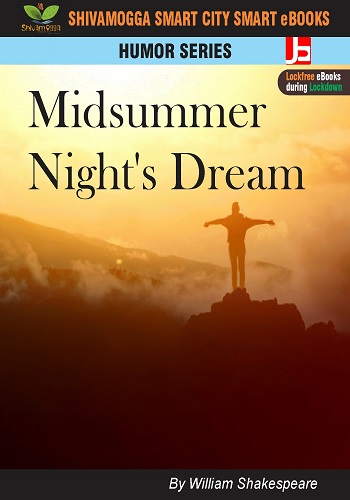 Two pairs of young lovers fall asleep in an ancient Athenian forest and wake to find themselves in the middle of a good deed gone wrong. A Midsummer Night's Dream conjures up a fairyland inhabited by well-intentioned sprites whose magic leads to farcical confusion. The mirthful tangle of mistaken identities and misplaced affections develops and resolves in the glorious poetry of England's greatest playwright.Shakespeare's fantastical comedy has enchanted audiences
Two pairs of young lovers fall asleep in an ancient Athenian forest and wake to find themselves in the middle of a good deed gone wrong. A Midsummer Night's Dream conjures up a fairyland inhabited by well-intentioned sprites whose magic leads to farcical confusion. The mirthful tangle of mistaken identities and misplaced affections develops and resolves in the glorious poetry of England's greatest playwright.Shakespeare's fantastical comedy has enchanted audiences -
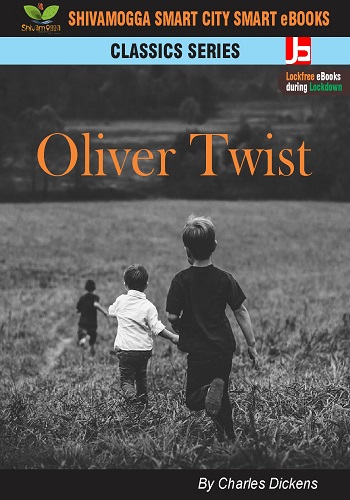 This carefully crafted ebook: "OLIVER TWIST (Illustrated Edition)” is formatted for your eReader with a functional and detailed table of contents. Oliver Twist is an orphan boy who starts his life in a workhouse and then gets sold into apprenticeship with an undertaker. He escapes from there and travels to London, where he meets the Artful Dodger, a member of a gang of juvenile pickpockets led by the elderly criminal, Fagin. Oliver Twist is notable for its unromantic portrayal by Dickens of criminals and their sordid lives, as well as for exposing the cruel treatment of the many orphans in London in the mid-19th century.
This carefully crafted ebook: "OLIVER TWIST (Illustrated Edition)” is formatted for your eReader with a functional and detailed table of contents. Oliver Twist is an orphan boy who starts his life in a workhouse and then gets sold into apprenticeship with an undertaker. He escapes from there and travels to London, where he meets the Artful Dodger, a member of a gang of juvenile pickpockets led by the elderly criminal, Fagin. Oliver Twist is notable for its unromantic portrayal by Dickens of criminals and their sordid lives, as well as for exposing the cruel treatment of the many orphans in London in the mid-19th century. -
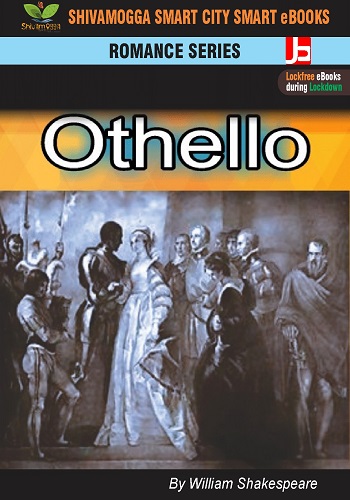 Othello (The Romance of Othello, the Moor of Venice) is a tragedy by William Shakespeare. It is based on the story Un Capitano Moro ("A Moorish Captain") by Cinthio (a disciple of Boccaccio's). The story revolves around its two central characters: Othello, a Moorish general in the Venetian army, and his treacherous ensign, Iago. Given its varied and enduring themes of racism, love, jealousy, betrayal, revenge, and repentance.
Othello (The Romance of Othello, the Moor of Venice) is a tragedy by William Shakespeare. It is based on the story Un Capitano Moro ("A Moorish Captain") by Cinthio (a disciple of Boccaccio's). The story revolves around its two central characters: Othello, a Moorish general in the Venetian army, and his treacherous ensign, Iago. Given its varied and enduring themes of racism, love, jealousy, betrayal, revenge, and repentance. -
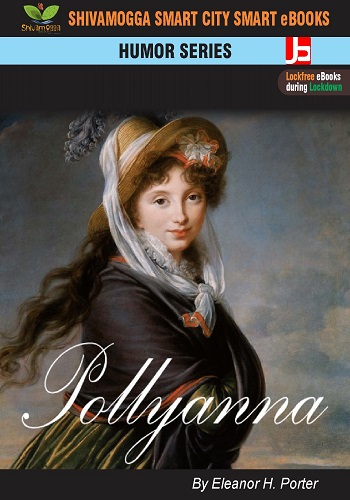 Pollyanna Whittier, is a young orphan who goes to live in Beldingsville, Vermont, with her wealthy but stern Aunt Polly. Pollyanna's philosophy of life centers on what she calls "The Glad Game", an optimistic attitude she learned from her father. The game consists of finding something to be glad about in every situation. It was one of the best theater plays with a four act comedy
Pollyanna Whittier, is a young orphan who goes to live in Beldingsville, Vermont, with her wealthy but stern Aunt Polly. Pollyanna's philosophy of life centers on what she calls "The Glad Game", an optimistic attitude she learned from her father. The game consists of finding something to be glad about in every situation. It was one of the best theater plays with a four act comedy -
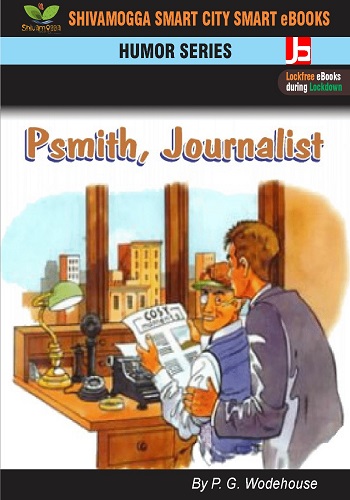 The story begins with Psmith accompanying his fellow student Mike to New York on a cricketing tour. Through high spirits and force of personality, Psmith takes charge of a minor periodical, and becomes embroiled in a scandal involving slum landlords, boxing and gangsters – the story displays a strong social conscience, rare in Wodehouse's generally light-hearted works.
The story begins with Psmith accompanying his fellow student Mike to New York on a cricketing tour. Through high spirits and force of personality, Psmith takes charge of a minor periodical, and becomes embroiled in a scandal involving slum landlords, boxing and gangsters – the story displays a strong social conscience, rare in Wodehouse's generally light-hearted works. -
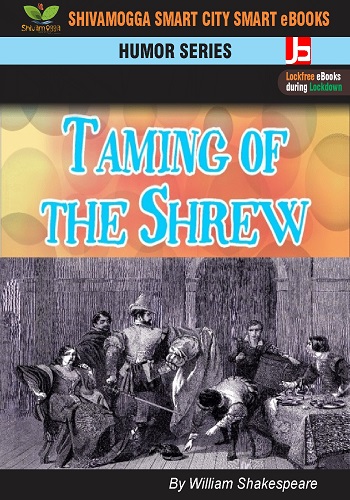 Love and wit conquer all in Shakespeare's sparkling comedy of self-delusion and disguise. Padua holds many suitors for the hand of fair Bianca, but Bianca may not be married until her spinster sister, Kate, is wed. Could any man be rash enough to take on Kate? The witty adventurer Petruchio undertakes the task. While he sets about transforming Kate from foul-tempered termagant to loving wife, young Lucentio and his clever servant
Love and wit conquer all in Shakespeare's sparkling comedy of self-delusion and disguise. Padua holds many suitors for the hand of fair Bianca, but Bianca may not be married until her spinster sister, Kate, is wed. Could any man be rash enough to take on Kate? The witty adventurer Petruchio undertakes the task. While he sets about transforming Kate from foul-tempered termagant to loving wife, young Lucentio and his clever servant -
 Narnia: A magical land full of wonder and excitement. A place where you will meet Aslan, the bravest of lions, and a beautiful but wicked Witch. There are lots of other fabulous creatures too: giants and dwarfs and animals that talk. It all begins when four children -- Peter, Susan, Edmund, and Lucy -- discover a strange old wardrobe. Stepping inside, they find that it's stranger still, because behind all the fur coats there is a wondrous land of trees and mountains, all glistening with snow. The White Witch has spread an icy winter everywhere. Only Aslan can defeat her and reverse her wicked spell. The children must find the lion before it is too late. If they fail, the Witch will make them her prisoners forever. In the fifty years since it was written, The Lion, the Witch And the Wardrobe has become one of the great classics of children's literature. Now younger children can share the magical experience, stepping into a world of enchantment that will forever lure them back.
Narnia: A magical land full of wonder and excitement. A place where you will meet Aslan, the bravest of lions, and a beautiful but wicked Witch. There are lots of other fabulous creatures too: giants and dwarfs and animals that talk. It all begins when four children -- Peter, Susan, Edmund, and Lucy -- discover a strange old wardrobe. Stepping inside, they find that it's stranger still, because behind all the fur coats there is a wondrous land of trees and mountains, all glistening with snow. The White Witch has spread an icy winter everywhere. Only Aslan can defeat her and reverse her wicked spell. The children must find the lion before it is too late. If they fail, the Witch will make them her prisoners forever. In the fifty years since it was written, The Lion, the Witch And the Wardrobe has become one of the great classics of children's literature. Now younger children can share the magical experience, stepping into a world of enchantment that will forever lure them back. -
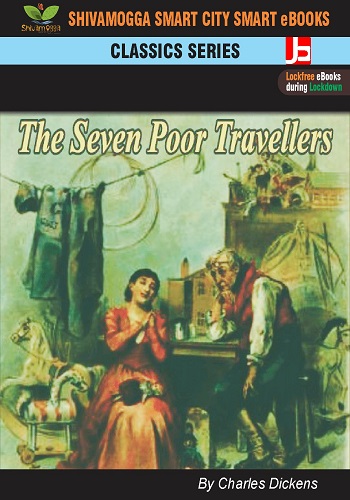 A short and inspirational work by Charles Dickens written as a Christmas story. Outshined by Dickens much more well known Christmas story, this short story has received scant notice. Yet I found it most delightful and comforting and can heartily recommend it. Written in the first person, Dickens tell of being a "poor traveller," and discovering a humble inn during his travels. Set up as a charitable hostel by a gentlemen deceased over a century previously, the inn offers to "six poor traveller's," true in heart, free lodging for one night plus enough money to purchase a simple meal. After satisfying himself of the bona fides of this charitable work, the "seventh poor traveller," as Dickens refers to the narrator, determines to contribute his own gift to his fellow "traveller's," it being Christmas Eve. Securing a sumptuous meal for the holy occasion, and preparing his own secret recipe of wassail, he shares a most satisfying Christmas Eve meal with his fellows, topping off the night with a personal story that befits a Christ-like life of humble service to the meanest among us. The story told, and following activities, serve to illustrate well the concept Dickens wishes to drive home, which is that at best we are all "poor traveller's" together in this life, and make the best of it all by sharing with a true heart whatever good and honest fare comes our way. Without the burden of judging harshly those whom we encounter who seem beneath our station, true happiness may be achieved before we, too, depart this veil of tears.
A short and inspirational work by Charles Dickens written as a Christmas story. Outshined by Dickens much more well known Christmas story, this short story has received scant notice. Yet I found it most delightful and comforting and can heartily recommend it. Written in the first person, Dickens tell of being a "poor traveller," and discovering a humble inn during his travels. Set up as a charitable hostel by a gentlemen deceased over a century previously, the inn offers to "six poor traveller's," true in heart, free lodging for one night plus enough money to purchase a simple meal. After satisfying himself of the bona fides of this charitable work, the "seventh poor traveller," as Dickens refers to the narrator, determines to contribute his own gift to his fellow "traveller's," it being Christmas Eve. Securing a sumptuous meal for the holy occasion, and preparing his own secret recipe of wassail, he shares a most satisfying Christmas Eve meal with his fellows, topping off the night with a personal story that befits a Christ-like life of humble service to the meanest among us. The story told, and following activities, serve to illustrate well the concept Dickens wishes to drive home, which is that at best we are all "poor traveller's" together in this life, and make the best of it all by sharing with a true heart whatever good and honest fare comes our way. Without the burden of judging harshly those whom we encounter who seem beneath our station, true happiness may be achieved before we, too, depart this veil of tears. -
 The Tempest has Romantics elements of both tragedy and comedy. The Tempest is one of two of Shakespeare’s works that is set on an island. The action takes place over the course of one day. Prospero, the rightful Duke of Milan, has been exiled to the island by his brother Antonio who had usurped his title twelve years before. Antonio was able to achieve this with the help of Alonso, the King of Naples. Prospero lives on the island with his fifteen year old daughter Miranda.
The Tempest has Romantics elements of both tragedy and comedy. The Tempest is one of two of Shakespeare’s works that is set on an island. The action takes place over the course of one day. Prospero, the rightful Duke of Milan, has been exiled to the island by his brother Antonio who had usurped his title twelve years before. Antonio was able to achieve this with the help of Alonso, the King of Naples. Prospero lives on the island with his fifteen year old daughter Miranda. -
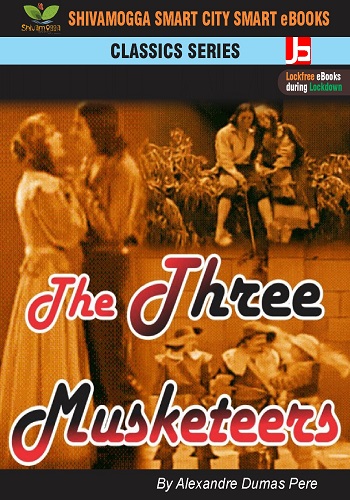 The Three Musketeers is one of the most famous historical novels ever written. It is also one of the world's greatest historical adventure stories, and its heroes have become symbols for the spirit of youth, daring, and comradeship. The action takes place at the court of Louis XIII, where the musketeers, Athos, Porthos, and Aramis, with their companion, the headstrong d'Artagnan, are engaged in a battle against Richelieu, the King's minister, and the beautiful, unscrupulous spy, Milady. Behind the flashing blades and bravura, in this first adventure of the Musketeers, Dumas explores the eternal conflict between good and evil.
The Three Musketeers is one of the most famous historical novels ever written. It is also one of the world's greatest historical adventure stories, and its heroes have become symbols for the spirit of youth, daring, and comradeship. The action takes place at the court of Louis XIII, where the musketeers, Athos, Porthos, and Aramis, with their companion, the headstrong d'Artagnan, are engaged in a battle against Richelieu, the King's minister, and the beautiful, unscrupulous spy, Milady. Behind the flashing blades and bravura, in this first adventure of the Musketeers, Dumas explores the eternal conflict between good and evil. -
 "And why Tom Tiddler's ground?" said the Traveller. "Because he scatters halfpence to Tramps and such-like," returned the Landlord, "and of course they pick 'em up. And this being done on his own land (which it is his own land, you observe, and were his family's before him), why it is but regarding the halfpence as gold and silver, and turning the ownership of the property a bit round your finger, and there you have the name of the children's game complete. And it's appropriate too," said the Landlord, with his favourite action of stooping a little, to look across the table out of window at vacancy, under the window-blind which was half drawn down. "Leastwise it has been so considered by many gentlemen which have partook of chops and tea in the present humble parlour."
"And why Tom Tiddler's ground?" said the Traveller. "Because he scatters halfpence to Tramps and such-like," returned the Landlord, "and of course they pick 'em up. And this being done on his own land (which it is his own land, you observe, and were his family's before him), why it is but regarding the halfpence as gold and silver, and turning the ownership of the property a bit round your finger, and there you have the name of the children's game complete. And it's appropriate too," said the Landlord, with his favourite action of stooping a little, to look across the table out of window at vacancy, under the window-blind which was half drawn down. "Leastwise it has been so considered by many gentlemen which have partook of chops and tea in the present humble parlour."


